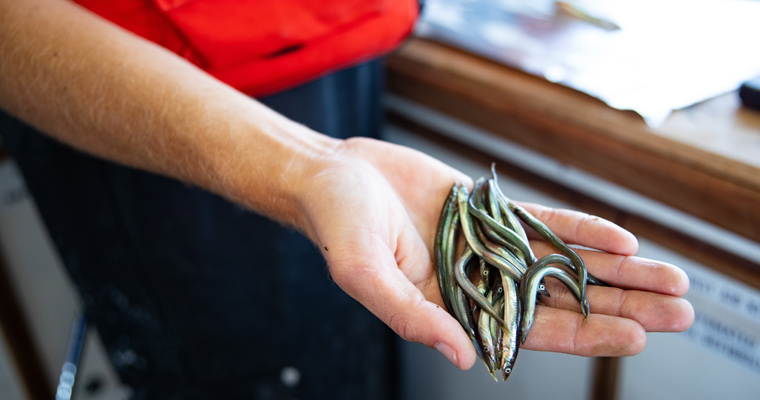Environmental Innovation Clinic Leads to Protection for the Sand Lance
Industrialization of Sand Lance Impacts Endangered Birds and Other Fish in Food Chain

Working with other members of the School for the Environment, Alan Abend, the assistant dean and a graduate student in the Introduction to Environmental Innovation Clinic class, has won protection in Massachusetts for the sand lance, a previously unregulated fish. Because of its slender shape, several species of sand lances are referred to as "sand eels," even though they are not related to eels.
“A key to a sustainable and diverse ecosystem such as the Gulf of Maine is maintaining a stable population of forage fish such as sand lance. Under current regulations, a fishery could open on any unmanaged forage species with no assessment of the impacts on the ecosystem or economy,” Abend said.
A new 200-pound fishing trip limit is designed to prevent the proliferation of an industrial scale bait or reduction fishery on this important nearshore forage species. The limit will continue to accommodate any small-scale commercial or personal bait harvesting activity that may be occurring with beach seines or other similar artisanal gear.
Through the Environmental Innovation Clinic, students explore various methodologies and identify, in collaboration with real client stakeholders, sustainable, innovative strategies to address current environmental challenges.
Abend worked on the project with Adjunct Professor and Assistant Director of the Fisheries Biology Section of the Massachusetts Division of Marine Fisheries Michael Armstrong and former SFE Dean Robyn Hannigan.
About UMass Boston
The University of Massachusetts Boston is deeply rooted in the city's history, yet poised to address the challenges of the future. Recognized for innovative research, metropolitan Boston’s public university offers its diverse student population both an intimate learning environment and the rich experience of a great American city. UMass Boston’s colleges and graduate schools serve 16,000 students while engaging local and global constituents through academic programs, research centers, and public service. To learn more, visit www.umb.edu.